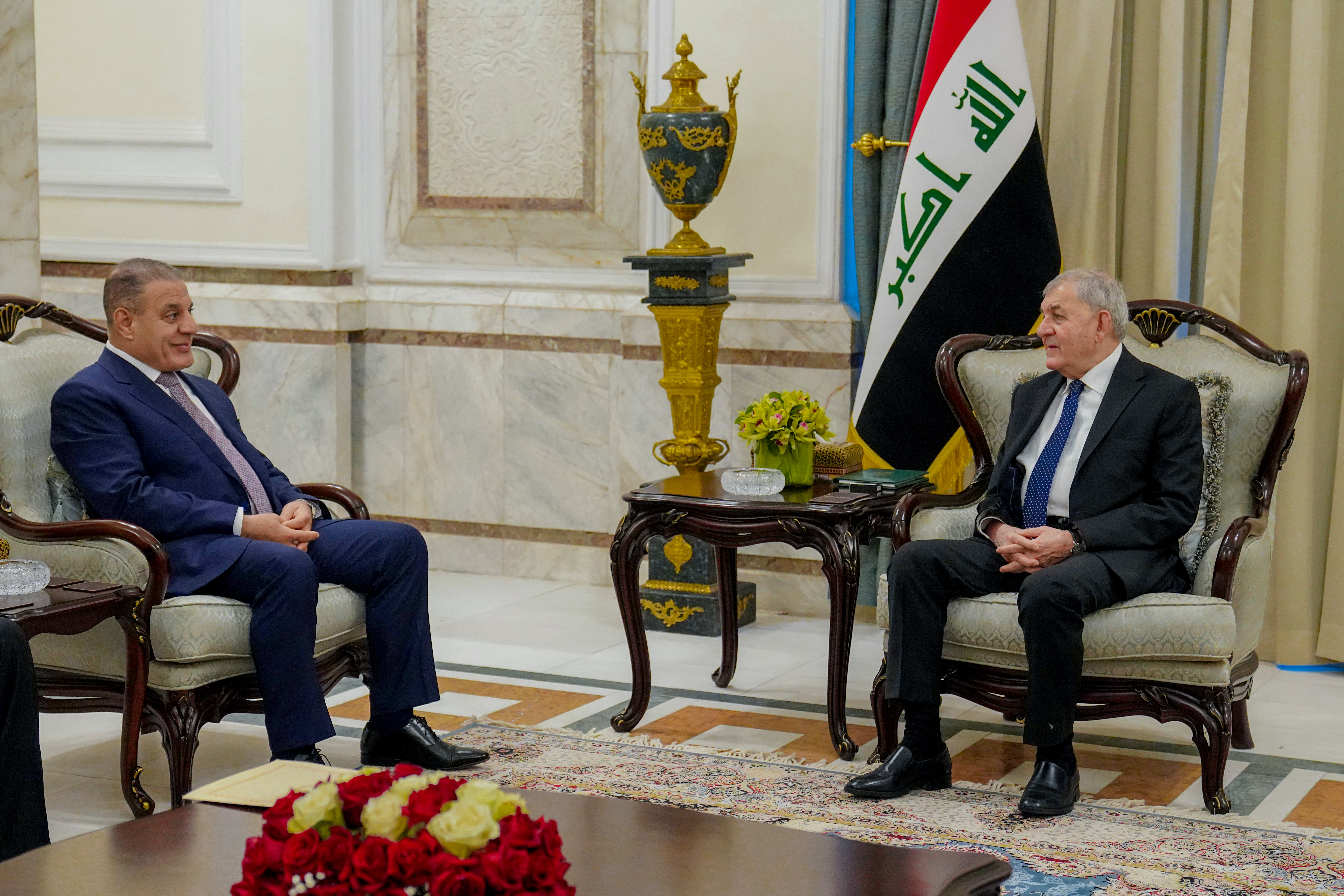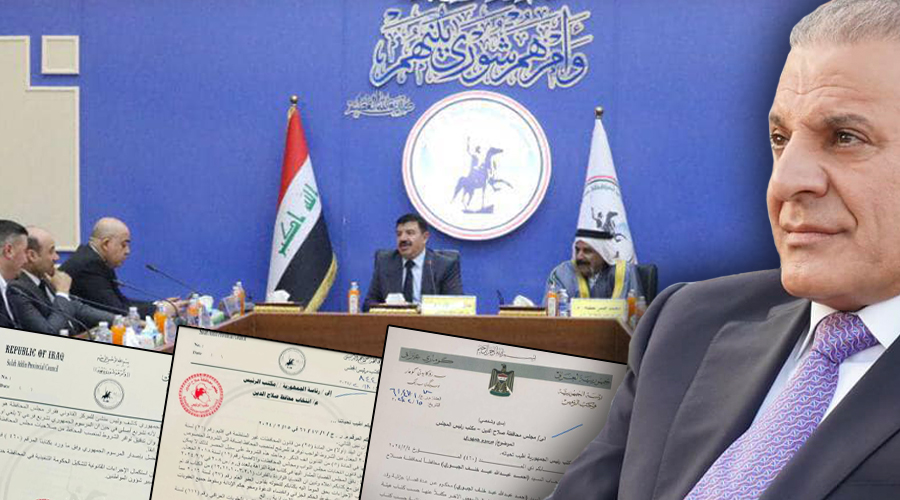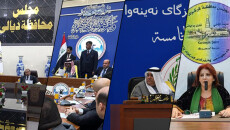The Salah al-Din Provincial Council refuses to abandon Ahmed Abdullah al-Jubouri, elected as governor by a majority vote of the council members, after the Presidency of the Republic denied issuing a decree to appoint him to the position for “court cases.”
Ahmed Abdullah Al-Jubouri, known as (Abu Mazen), a Sunni figure and Secretary-General of the National Mass Party, was elected on February 4 as governor of Salah al-Din by a majority of votes, as the party he heads was able to win four seats out of a total of 15 seats of Salah al-Din Provincial Council.
But the Presidency of the Iraqi Republic refused, in a “secret” letter addressed to the Salah al-Din Provincial Council, to issue a decree appointing Ahmed al-Jubouri, as he had been sentenced in several cases and was granted amnesty.
He was also released on bail in connection with another case, according to the letter from the Presidency of the Republic, copy of it obtained by (KirkukNow), based on a letter from the Federal Integrity Commission and the Ministry of Interior.
Yassin Muhammad, a member of the Salah al-Din Governorate Council from the National Mass Bloc, says that the refusal to appoint Ahmed Abdullah al-Jubouri (Abu Mazen) to the position of governor and the failure of the Presidency to issue a decree appointing him is a “political” decision and that Abu Mazen “will not give up the position easily” and will appeal it.
According to the election law, the order to appoint the governor is issued by presidential decree within 15 days from the date of his election and then he will begin his duties, meaning that the issue of the Salah al-Din Governor assuming his duties was supposed to be resolved by today, February 19.
Yassin Muhammad told (KirkukNow) that Abu Mazen will appeal the decision of the Presidency of the Republic and that the Council will respond to the Presidency of the Republic, awaiting the outcome of the next steps, because Abu Mazen was previously included in the amnesty and the charges against him were canceled while he is a member of the Iraqi Parliament.
“If he would have been convicted, he would lose his membership in the Parliament as well.”

Meeting of the President of the Iraqi Republic, Latif Rashid, with Ahmed Abdullah Al-Jubouri, Baghdad, 2023. Media of the Presidency of the Republic
According to the press office of the Salahaddin provincial council, during the first meeting of the new provincial council, each of the governor and two deputies, as well as the speaker and deputy council were elected.
Al-Jamahir al-Watania (National Masses) coalition, which included a number of Sunni Arab and Kurdish parties, won the election and formed a local government with several other Sunni parties, including the Siyada (Sovereignty) and Hasm al-Watani (National Decisiveness) coalitions.
The predominantly Sunni province of Salahaddin, about 135 kilometers north of the Iraqi capital, once home for Saddam Hussein, is under the control of Iraqi Security Forces ISF including the Shia-led paramilitary forces, the Popular Mobilization Forces PMF, known as al-Hashid al-Shabi.
Mohammed added that if the issue of the governor assuming his duties is not resolved today, the issue of forming the local government in Salah al-Din will return to square one and discussions will begin to identify an alternative candidate for the position.
The position of governor is the highest executive authority in the governorate, and a person is nominated for the position by the provincial council. The law requires that the candidate for the position not have been convicted of a felony or misdemeanor, not be covered by the De-Baathification Law, and not have become illegitimately enriched at the expense of the nation and the public domain.
The provincial council of Salahaddin consists of 15 seats, four of which will be reserved for women, according to the population (over 1.6 million people) and based on the latest amendments to the electoral law of the Iraqi parliament and provincial councils.
The Iraqi provincial councils were dissolved at the end of 2019 under the second amendment to the provincial council elections law, which was one of the demands of Tishreen (October 2019) protesters in Baghdad and several other provinces against corruption, demonstrations heavily targeted, left hundreds of civilians killed and thousands injured.
On February 18, the Salah al-Din Provincial Council asked the Presidency of the Iraqi Republic to issue a presidential decree appointing the governor, because Ahmed Abdullah al-Jubouri was included in the pardon and all legal procedures against him were cancelled, and the other cases are still in the investigation stage and do not affect his candidacy.
The Council pointed out that the real legislative authority is in the hands of the Provincial Council and not the Presidency of the Republic, which has secondary authority on the legislative side, and its decisions do not disrupt or cancel real legislation.
The Provincial Council says that the judicial body of the Election Commission allowed Ahmed Abdullah Al-Jubouri to run and become a representative in Parliament because no charges were proven against him.
The Iraqi provincial council elections, with the exception of the Iraqi Kurdistan Region IKR, were held on December 18, 2023, a political vacuum that extended for four years, given that the Iraqi parliament ended the work of the councils in late 2019.
According to the election results, out of 15 Iraqi governorates, the local government was formed in 13 governorates, while the Kirkuk and Diyala councils failed to form the local government due to disagreements between the blocs and a lack of agreement on the distribution of senior positions.






